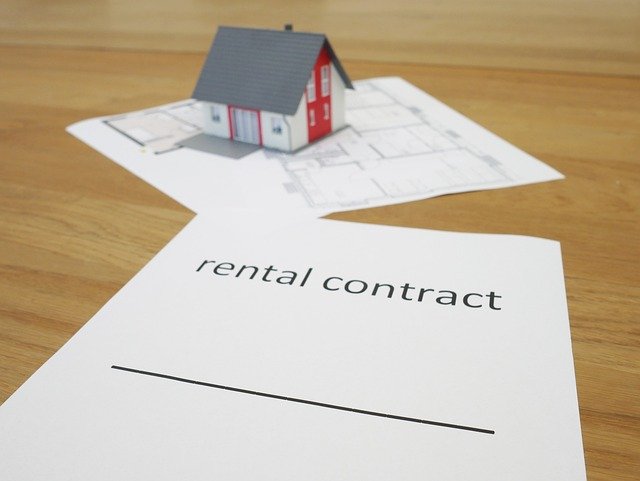Comparing Utility and Cleaning Policies in Extended Stay Arrangements
This article compares how utilities and cleaning policies are handled in boarding houses and serviced apartments for extended stays. It explains typical responsibilities, what landlords or operators commonly include, how privacy and safety are affected, and practical cost considerations for monthly and short-term relocations.

Extended stay arrangements present a range of approaches to utilities and cleaning, influenced by property type, lease length, and target guest profile. Boarding houses and serviced apartments often advertise furnished spaces for monthly or short-term stays, but the specifics of utilities, connectivity, housekeeping, and privacy can differ markedly. Understanding these differences helps people relocating for work, corporate planners, and travelers evaluate trade-offs between convenience, flexibility, and ongoing costs.
Utilities in extended stay and furnished rentals
Utilities policies determine whether bills for electricity, water, gas, heating, or garbage are included in rent or billed separately. Serviced apartments frequently bundle utilities into a single monthly rate for corporate and relocation stays, simplifying billing and often including higher-capacity internet and more predictable energy service. Boarding houses may include basic utilities but sometimes require tenants to share costs or pay for overages. Lease wording should specify what’s included, how usage is measured, and any caps or surcharges to avoid surprises.
Who handles housekeeping and amenities
Housekeeping standards are a major distinction. Serviced apartments commonly provide regular housekeeping as part of the offering—daily, weekly, or bi-weekly—especially for corporate or monthly bookings; this usually covers cleaning, linen changes, and replenishing basic supplies. Boarding houses may offer communal cleaning for shared areas while expecting residents to maintain private rooms; some provide optional paid cleaning. Confirm whether linen, laundry, or dry-cleaning services are included and whether common amenity areas are maintained by on-site staff.
How connectivity, privacy, and safety compare
Connectivity and privacy affect both comfort and security during extended stays. Serviced apartments aimed at corporate guests tend to include dedicated high-speed internet and secure access systems, and they often have clearer privacy policies for housekeeping and staff access. Boarding houses may rely on shared Wi-Fi or individual connections and can have more transient occupants, which affects privacy and on-site safety dynamics. Check building access controls, guest policies, and how management handles keys, visitor logs, and emergency procedures.
Lease flexibility, monthly terms, and short-term options
Lease structure matters for relocation and short-term needs. Serviced apartments often offer furnished monthly leases with flexible start and end dates designed for corporate or relocation periods; conversions to longer-term leases can sometimes be negotiated. Boarding houses typically have simpler, short-term agreements that are easy to enter and exit but may contain weekly or monthly rent adjustments. Review notice periods, deposit handling, and whether utilities or housekeeping are pro-rated when stays begin or end mid-cycle.
Real-world cost and pricing insights
Costs reflect inclusion or exclusion of utilities and cleaning. A furnished serviced apartment with utilities and housekeeping bundled will generally show a higher headline monthly rate but lower administrative effort and fewer unpredictable bills. Boarding houses can appear cheaper upfront but may add costs for internet upgrades, individual utility usage, and paid cleaning. For relocations, factor in setup fees, refundable deposits, and potential corporate rates that can affect final monthly costs. Below is a comparison of commonly used providers and product types with typical monthly cost ranges.
| Product/Service | Provider | Cost Estimation |
|---|---|---|
| Serviced apartment (full-service monthly) | Ascott (The Ascott Limited) | $2,000–$6,000 per month depending on city and apartment size |
| Branded serviced residence | Oakwood | $1,800–$5,500 per month in major markets |
| Flexible furnished units (app-managed) | Sonder | $1,500–$4,000 per month depending on location |
| Marketplace furnished rental (monthly) | Airbnb (monthly stays) | $1,000–$4,500 per month; wide variation by city and demand |
Prices, rates, or cost estimates mentioned in this article are based on the latest available information but may change over time. Independent research is advised before making financial decisions.
How safety, privacy, and housekeeping policies affect costs
Safety and privacy policies can increase costs but add value for many stays. Properties that include 24/7 security, strict visitor controls, and locked storage may charge more or require higher deposits. Frequent or included housekeeping raises the monthly rate but reduces in-unit maintenance time and can benefit corporate travelers with limited local support. Boarding houses that limit staff intervention may be less expensive but place more responsibility on residents for cleanliness and secure practices.
Evaluating offers for relocation or corporate stays
For relocations and corporate bookings, prioritize clarity in lease language about utilities, connectivity, and housekeeping schedules. Ask for sample invoices when utilities are billed separately, request a written housekeeping schedule and privacy policy, and check whether amenity access (gym, parking, reception) is billed separately. Compare bundled costs against itemized billing to determine which arrangement better suits needs for predictability, privacy, and overall cost control.
Extended stay choices balance cost, convenience, and control. Serviced apartments tend to centralize utilities and cleaning for a simplified experience at a higher headline rate, while boarding houses may offer lower initial rent with variable utility and cleaning responsibilities. Careful review of lease terms, utility arrangements, and housekeeping policies helps match the accommodation type to priorities such as flexibility, safety, privacy, and predictable monthly costs.




